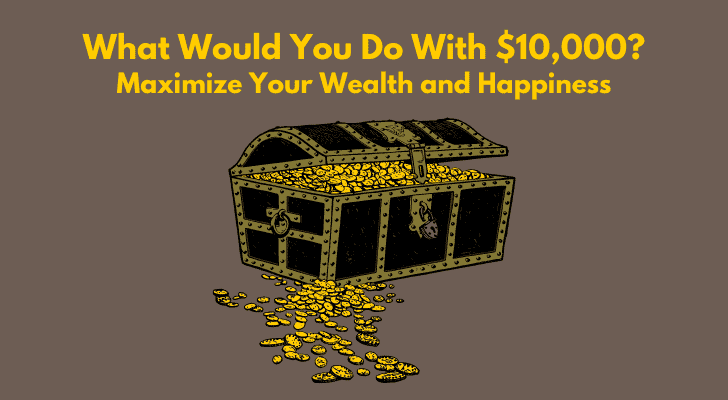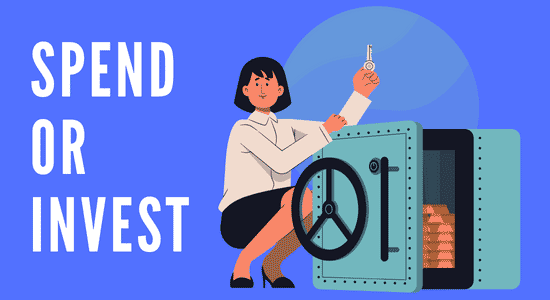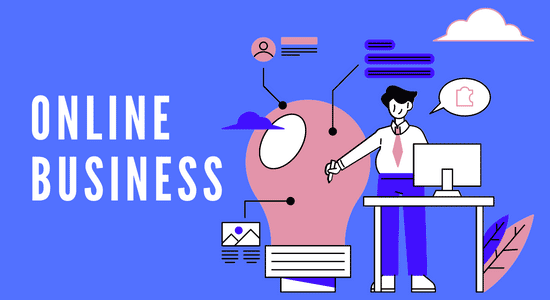Are you sitting on $10,000 of savings and wondering how to make the most of it? Although the interest rates may be on the rise, if you are keeping all your money in a savings account, you’re not taking full advantage of the current market. With that said, it's good to have some capital because you're already ahead of many Americans who struggle to put aside any money at all.
Now it's time to take your financial game plan up a notch. Let's find out how you can use that hard-earned cash wisely and set yourself up for long-term financial success.

What To Do With Your $10,000
You may be planning to split your $10,000 into several purposes as a way to spread potential risks. Building a business with some of the funds can help create future income and provide financial security.
Investing in stocks or other instruments can be an effective way to grow your wealth over time. Or, setting aside a portion of the money in savings will give you access to cash when needed while still earning interest.
Let's Find Out About Yourself
1. How would you prioritize your current financial situation with $10,000?
- A) Pay off debt
- B) Save or invest
- C) Make a significant purchase
- D) Spend on experiences
2. What's your primary goal for this money?
- A) Long-term wealth building
- B) Immediate financial relief
- C) Personal or professional development
- D) Leisure and enjoyment
3. Which area of personal or professional development would you invest in?
- A) Further education or courses
- B) Starting a small business
- C) Health and fitness
- D) Hobbies and skills
4. How would you approach saving this amount?
- A) High-yield savings account
- B) Certificate of Deposit (CD)
- C) Retirement account (IRA, 401(k))
- D) Emergency fund
5. What investment strategy appeals to you most?
- A) Stock market
- B) Real estate
- C) Cryptocurrency
- D) Bonds or mutual funds
6. If choosing to pay off debt, which one would you tackle?
- A) Credit card debt
- B) Student loans
- C) Mortgage
- D) Car loan
7. For a significant purchase, what would you consider?
- A) Home renovation
- B) Buying a car
- C) Technology upgrade
- D) Jewelry or luxury items
8. What kind of experiences would you spend on?
- A) Travel
- B) Dining and entertainment
- C) Cultural or sporting events
- D) Wellness retreats
9. If you decided to give, who would you support?
- A) Charities or causes
- B) Help a family member or friend
- C) Crowdfunding projects
- D) Educational scholarships
10. How would you ensure the money lasts or benefits you in the long term?
- A) By learning financial planning
- B) Hiring a financial advisor
- C) Regularly reviewing financial goals
- D) Creating a diversified investment portfolio
Here's My Advice
- Paying off debt can reduce your financial stress and save you money on interest, particularly if you're dealing with high-interest credit card debt.
- Saving or investing is a great way to secure your financial future. Whether it's for retirement, an emergency fund, or a future purchase, this money can grow over time.
- Investing in personal or professional development can open new career opportunities and increase your earning potential. It's an investment in yourself that can offer long-term benefits.
- Choosing a savings strategy should align with your financial goals and timeline. High-yield savings accounts offer flexibility, while CDs and retirement accounts might offer higher returns for longer commitments.
- Picking an investment strategy requires understanding your risk tolerance and investment goals. Stocks and real estate offer potential for high returns but come with higher risks compared to bonds or mutual funds.
- Paying off specific debts should be prioritized based on interest rates and financial impact. High-interest debts, like credit card debt, should typically be tackled first.
- Making a significant purchase should be carefully considered, especially if it's a want rather than a need. Ensure it fits within your overall financial plan.
- Spending on experiences can lead to lasting happiness. Research suggests that people often derive more joy from experiences than from physical objects.
- Giving to others can be incredibly rewarding. Consider donating to causes you're passionate about or helping out someone in need, which can make a significant impact.
- Ensuring long-term benefits involves continuous learning and adapting your financial strategy as your life and the economy change. Regularly reviewing your financial plan can help you stay on track toward your goals.
Invest in Your Online Business
Setting up a brick-and-mortar business can be extremely expensive, ranging from high rent costs to licensing fees. But if we are looking at an online business, the setup cost is drastically reduced.
For example, the initial outlay for an e-commerce website can be quite minimal with hosting packages starting at under $10 per month. There's no need for staff or physical premises which dramatically reduces running costs, allowing you to focus your efforts on marketing your products or services instead.
Website Hosting:
Depending on the size and scope of your online store but you don’t really need to budget for website hosting because it’s quite low. Although it can range from a few dollars per month for a basic shared hosting plan to hundreds of dollars per month for a robust eCommerce platform.
Put aside: $200 - $1,000
Inventory:
Of course, you'll need to have products to sell! How much inventory you need will depend on the type of products you're selling, your sales volume, and other factors. If you're just starting out, it's often best to keep your inventory levels low so you don't get stuck with excess stock.
Put aside: $1,000 - $2,000 to start with.
Marketing:
Getting the word out about your online store is essential for driving sales. There are many different ways to market your business, and how much you'll need to spend will depend on your chosen strategy. From social media ads to Google Ads campaigns, there are endless possibilities when it comes to marketing your online store.
Put aside: $1,000 - $2,000 to start with.
Inventory and marketing will cost you continuously, so you can roll over some of your profits every month and scale of the budget gradually.
You can use $4,000 - $5,000 in total to start your e-commerce business. E-commerce is a rapidly growing industry, and it can be extremely competitive. If you're thinking about starting an online business, you need to be prepared for stiff competition. I would only recommend it if you have a particular niche in mind that you are determined to sell.
Affiliate Marketing
Affiliate marketing is one of the most popular ways to make money online because it’s one of the easiest to get started with. But so many beginners quit within the first few months because they don’t learn the skills from a decent training program.
The good news is the running costs will be less than an e-commerce business because of no need for inventory.
You can put aside
- Website hosting plus affiliate marketing training $1,000
- Email marketing software $200
- Landing page builder $100
- Advertising cost to put aside $1,000
The total of just over $2,000 will be more than enough to get you to start legitimate affiliate marketing.
Again, the ongoing costs will be marketing/advertising to send traffic to your site. But if you have some time to create helpful content (review articles and YouTube videos), you will start to drive organic traffic over time.
CyberCash Wonderland
Finally win 10,000 dollars! Perfect timing, my car just broke down, the roof is leaking, and the internet bill is overdue. Back to square one, except with slightly less soul-crushing debt. Progress?
Invest in Gold
Gold is a valuable resource that has been used as a form of currency, jewelry, and other decorative items for centuries. While the value of gold can fluctuate, it is typically seen as a stable investment.
- Gold should be seen as a long-term investment. It can take time for the value of gold to increase, but it is typically less volatile than other investments such as stocks or real estate.
- There are different ways to invest in gold. You can purchase physical gold, invest in stocks or mutual funds that focus on gold mining companies or even invest in exchange-traded funds that track the price of gold.
- The amount you invest in gold should be based on your overall investment strategy and goals. For example, if you are investing for retirement, you may want to allocate a larger portion of your portfolio to gold than if you were just trying to generate some extra income.
Gold IRA
It's a good idea to use half of your $10,000 toward investing in Gold IRA to secure a good retirement life. A Gold IRA is an Individual Retirement Account that includes gold and other precious metals as part of its portfolio. This type of account has several benefits that make it a great choice for retirement savings.
For one, a Gold IRA provides more stability than other types of accounts. The value of gold tends to be less volatile than stocks or other investments, which means your savings are less likely to fluctuate in value. This can provide peace of mind during retirement, when you may be relying on your savings to cover living expenses.
Gold IRA can help diversify your retirement portfolio. By including gold and other precious metals in your account, you can reduce your overall risk and increase your chances of achieving a comfortable retirement.
If you're considering investing in a Gold IRA, now is a great time to do so. The value of gold is currently at an all-time high, making it a wise investment for the future. With a $5,000 investment, you can start to secure a solid foundation for your retirement years.
Become a Shareholder of a Company
Another investment option is to buy a stock and become a part-owner of the company. And as the company grows and becomes more successful, so does the value of your stock. What's more, you may also be eligible to receive dividends - which are essentially payments from the company to its shareholders.
So how do you go about buying a share and earning dividends?
- Open up a brokerage account with a reputable firm.
- Start researching different companies that interest you.
- When you've found a company that you want to invest in, you can place an order for shares through your broker.
And once your order is filled, you'll officially be a shareholder. $5,000 is more than enough to part-own a few companies.
Of course, owning shares doesn't guarantee that you'll receive dividends. That depends on the success of the company and whether or not they choose to pay out dividends to the shareholders.
But if things go well, investing in stocks can be a great way to earn some extra income - without having to do much work at all.

Or, Spend It All?
What's better, maximizing your wealth or enriching your happiness?
$10,000 isn’t much. You can’t even buy a new car. Money is only a means to an end - it's not an end in itself. When you think about it that way, money means very little. Then spend it all.
That's the exciting attitude you need to have in life. Money may not buy happiness, but it can sure buy a lot of fun. So what's the harm in spending it all? It's just money. It's not like you're going to miss it when it's gone. Enjoy yourself. Live for today and don't worry about tomorrow. That's the best way to live life to the fullest.
Conclusion
Someone who is wealthy today could become bankrupt tomorrow. A person who is struggling financially today could become a millionaire tomorrow. Oftentimes, it's not due to their wisdom or incompetence, but to the world economy, which no one can predict in the long run. In another word, luck.
Your decision today will not transform your life. How you spend your money won't change your life drastically. But it's how it turns out to be, and no one knows what the future holds.
Then, what you can do is keep working on your investment. Keep monitoring it so you won’t lose it all. Make sure you keep rolling it forward so it can continue to grow.
But don't get too attached to material possessions because they can all disappear in an instant due to some unforeseen circumstances. So don’t forget to focus on what really matters in life: relationships, experiences and personal growth.


